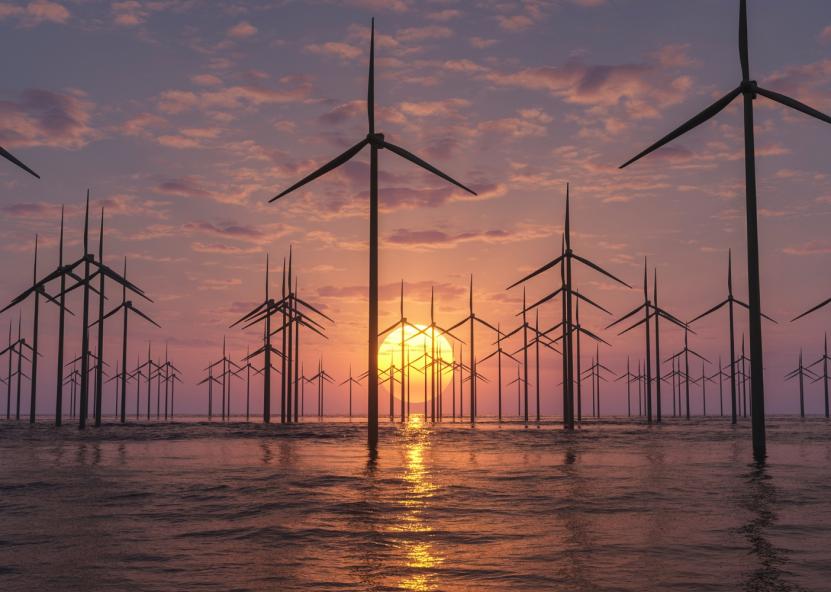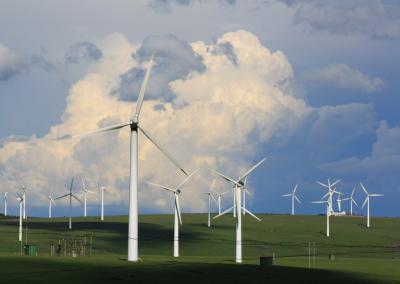The Swedes will not build wind farms in the Baltic Sea!
Last Monday, the Swedish government formally announced that it will not grant permits for 13 planned wind farms in the Baltic Sea outside Swedish territorial waters, after weighing up all the arguments and above all the defence challenges. The announcement was made at the beginning of the week by almost all major Western European websites. Meanwhile, in Lithuania – Olympic calm.
According to the British newspaper „The Guardian“, the Swedish government has received the arguments to stop the development of wind parks with great heartache. But it couldn't help but hear the voice of the military: „it is dangerous at the moment“.
The Swedish government announced this terrible news at a press conference on Monday. Defence Minister Pal Jonsson told reporters that the armed forces have submitted documents showing that the wind farm will slow down the country's ability to respond to missiles, unmanned aerial vehicles and submarine activity by potentially hostile countries. The Swedish military's investigation also showed that the projects could significantly interfere with sensors used by the military. Wind towers and rotating blades emit radio echoes and other interference.
„In a serious security situation such as Sweden's, defence interests must carry extra weight,“ Defence Minister Pal Jonsson told reporters.The minister added that the proximity of Russia's highly militarised Kaliningrad region was a key factor in the assessment. At the same time, energy needs, particularly in relation to renewables, remain high on the Swedish agenda.
Meanwhile, the Lithuanian Ministry of National Defence has not made any claims against the „Ignitis“ group or any other wind power developers. And Sweden is not that far from Lithuania. After all, our country's security circumstances are much worse than Sweden's. We have the Nemunas River, on the other bank of which, in Königsberg, Russia, just a few kilometres from Pagėgiai, there are Iskander missiles. Meanwhile, we bake wind turbines like cakes.
A memorandum from the Swedish government, according to the AFP news agency, predicts that Sweden's electricity demand could more than double by 2045. „But in these current cases, defence interests have taken precedence“, – said Romina Pourmokhtari, minister of climate and environment.
Among the wind energy developers affected by the Swedish government's boycotts were companies such as Sweden's OX2, Germany's RWE and Norway's Statkraft.
According to „The Guardian“ and other major media outlets, the decision can be seen as a temporary retreat from sustainability policies. At the moment, Scandinavians are putting homeland security before sustainability. The experts quoted also point out that the Baltic Sea is a very good location for wind farms due to its relatively shallow seabed and consistent wind speeds, but that security challenges will mean that this location for renewable energy development will be abandoned for a while.
The closest project to Lithuania that has been suspended is the „Pleone“ project, located in the middle of the Baltic Sea between the island of Gotland and Ventspils. A park developed by a subsidiary of „Ignitis“ is also expected to come very close by, most likely near Šveta.After rejecting 13 projects in the Baltic Sea, the Swedes have given the go-ahead for the „Poseidon“ project in the North Sea, which would be located on the west coast of Skagerrak. It is a „floating“ wind project. Poseidon would consist of up to 81 floating turbines at a height of up to 340 metres (more than 1 100 feet) and would have a potential of 5.5 TWh per year. The permit requires the wind farm to be built within 10 years, with a total lifetime of 40 years. Construction could tentatively start by 2029 and possibly be completed around 2031. „Poseidon“ is the third offshore wind project to be approved by the current Swedish government.
In Lithuania, meanwhile, there is post-election joy and endless debate about who cheated the voters and why. As if there were no bigger problems. Despite Scandinavian safety concerns, „Ignitis renewables“ together with its strategic partner „Ocean Winds“ will continue to develop the first offshore wind farm project in Lithuania. For some reason, the Lithuanian military does not see the dangers of offshore wind as a problem. At least, they don't talk about it out loud. Maybe we should look into the Swedish arguments and reconsider whether it is necessary to build those giant windmills so close to the shore of Šventoji that they would obstruct the view of enemy missiles or drones? Besides, the wings of the windmills emit waves that make it difficult to see those missiles.If the Lithuanian government will not react to the Swedish decision, it might be worth considering public initiatives that would help former or future rulers to decide to follow the example of a neighbouring country. Perhaps Ignitis itself, seeing the international situation, will reduce its appetite for destroying the Baltic Sea, the most polluted sea in Europe, whose bottom is dangerous and unexplored? We can only hope that developers themselves will take the initiative to stop renewable energy projects in the Baltic Sea.










































































































